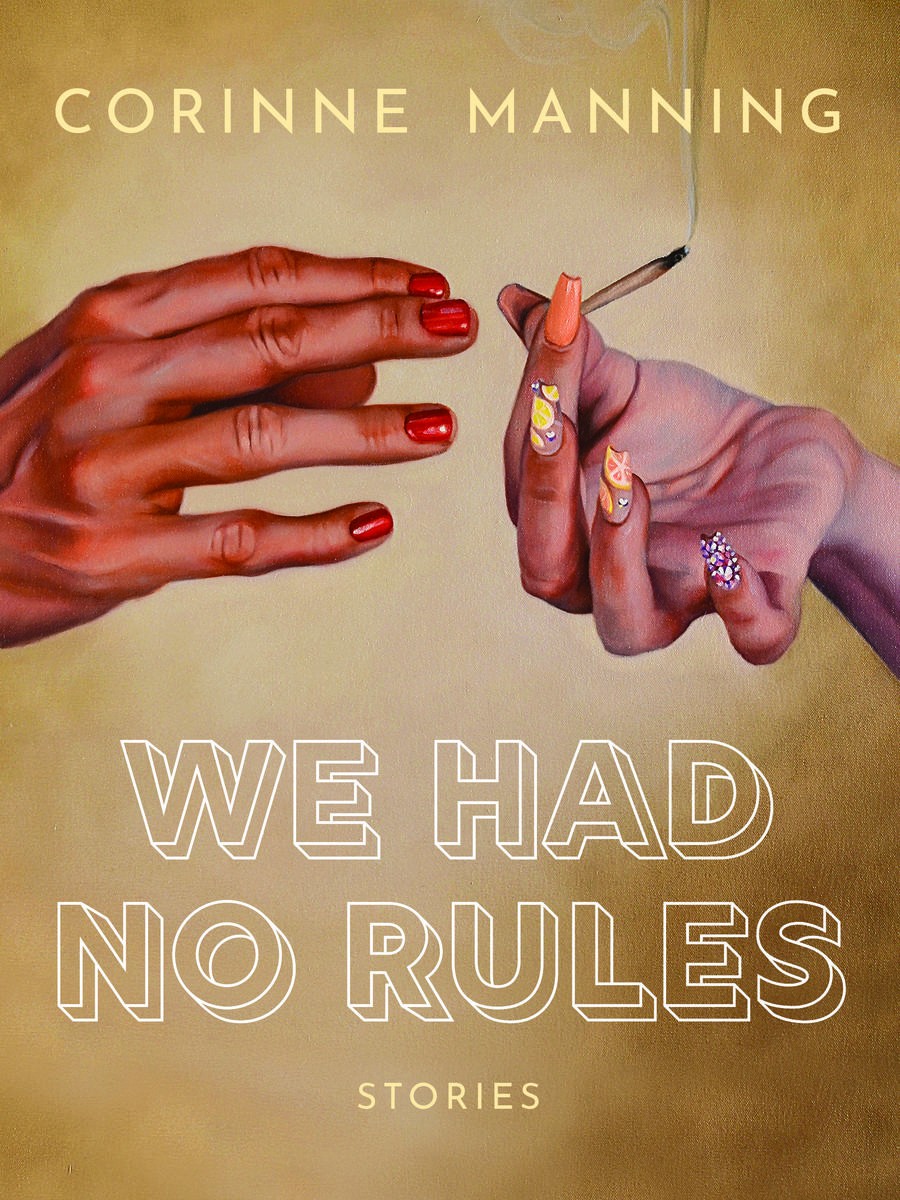I love a short story collection with an overt unifying factor. Short stories give an author a shifting perspective from which to examine a concept — and the option to pull the ripcord before the narrative gets weighed down. On a series of plane rides and layovers over the holidays, I absolutely devoured Nina MacLaughlin’s Wake, Siren: Ovid Resung (FSG Originals). Feminist retelling of mytho-historic epic poem? Sign. Me. Up. So Corinne Manning’s debut collection of queer short fiction, We Had No Rules (Arsenal Pulp Press), is right up my alley. And if all coming-of-age stories boasted as much humor and humanity as the collection’s titular story packs into its 16 pages, I would never have grown tired of the form. Note to all fledgling authors: Take a page out of Corinne Manning’s book. Please. 
The first story in Manning’s debut, from which the collection takes its name, acts as a primer to the issues Manning’s characters must face throughout. In “We Had No Rules,” told in first person, the unnamed protagonist has just come out to her parents and is now living with her older sister in an apartment with two other women.
Manning’s characters must navigate a life, if not without rules, then certainly utterly devoid of an instruction manual. They juggle coming out, gender norms, post-breakup pet custody, backpacking trips with the Rainbow Rompers, sex, pronouns, and unbalanced power dynamics. In “We Had No Rules,” the protagonist’s sister Stacy says, “You made it easy for them. They want you to feel so ashamed that you leave. There’s this way they pretend there’re no rules, and they subtly suffocate you. That’s what they did to me, only they posed it as a choice. If you wanted to do it differently, you would have given them the ultimatum, like: ‘Either you accept me and we talk about this, or I’m getting the fuck out of here.’” 
Corinne Manning
The collection is equal parts humor, heartache, and education as Manning unpacks often-unseen narratives that have, nonetheless, existed in the margins for some time. The author is self-aware, playfully acknowledging that the audience (or sections of it) may need to be led along. “Now that I’m considered a lesbian, I know it’s incorrect to assume you know someone’s pronoun, but I don’t know if you’re ready for me to use the singular they. At this point in the story, I’m still concerned about what you are ready for,” Manning writes.
We Had No Rules often serves up age differences or gaps in experience. The author’s characters are forced to choose between conformity and authenticity, and if they have no rules, the same is not always true for society as a whole. Those rules, though, can be obtuse, and the penalties for breaking them seem to metamorphose without warning.
Manning’s eye for character is matched only by her clear prose, which almost seems to crackle with electricity. “I felt alive in the same way I had the first time I had sober sex,” Manning writes. Each story in We Had No Rules is distinct, and every sentence is a joy to read.